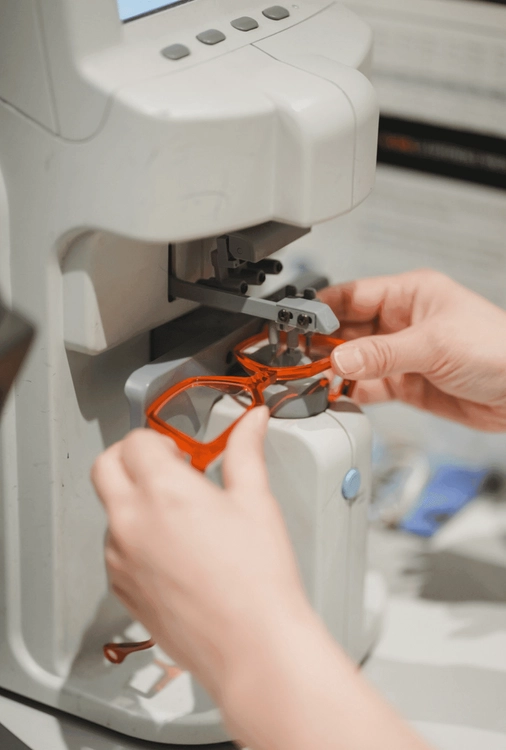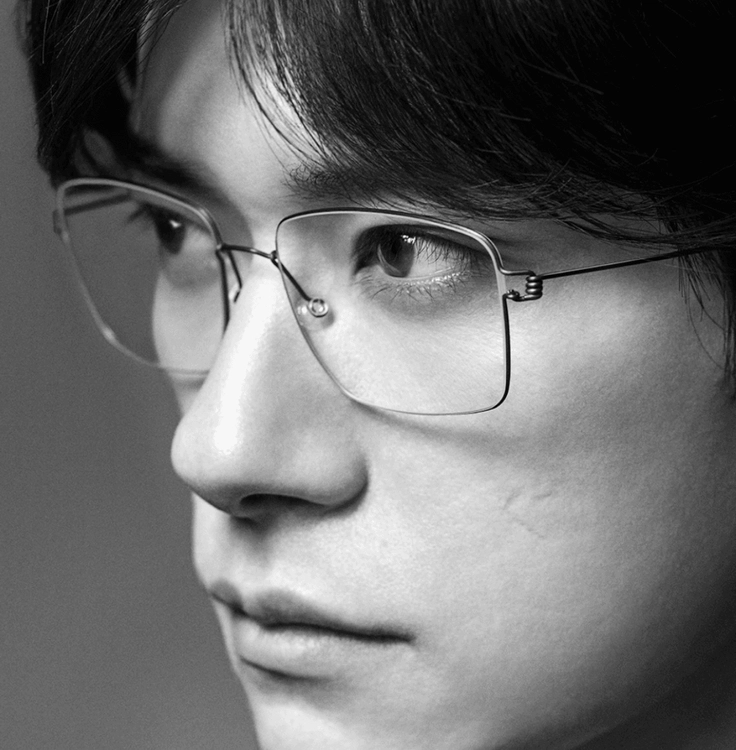
Published on April 25, 2023
Eye exams: Why are they important, and what happens during them
Eye exams are essential for maintaining optimal vision and eye health. They help detect eye diseases and visual impairments early, allowing for prompt intervention and treatment.
The Canadian Association of Optometrists recommends that adults get their eyes checked every two years.

Top reasons why eye exams are important
Vision tests
Vision eye exams will determine if you need corrective lenses, such as glasses or contact lenses, and ensure your prescription is up-to-date. This can help improve your quality of life by ensuring you can see clearly in your day-to-day life.
Eye health
Regular eye exams with our optometrists can detect and monitor various eye conditions and diseases, including glaucoma, cataracts, macular degeneration, hypertension and hypercholesterolemia. Early detection is crucial to prevent or slow down vision loss and effectively treat these conditions.
Systemic health
Some systemic health issues, like diabetes, high blood pressure, and autoimmune diseases, can be first observed in your eyes. An eye exam enables an optometrist to raise any red flags so that you can subsequently consult a doctor.
Developmental issues
For children, regular kid eye exams are crucial for their overall development. Undiagnosed vision problems can impact learning, social skills, and physical development.
Eye coordination and function
Eye exams can evaluate how well your eyes work together and determine if you suffer from strabismus (misaligned eyes) or amblyopia (lazy eye), which can affect depth perception, focusing ability, and overall visual acuity.
Prevention of digital eye strain
With the increasing use of digital devices, digital eye strain has become more common. An optometrist or optician can provide recommendations to maintain eye comfort and reduce the negative impact of blue light that is emitted from screens. To learn more about eye strain read our latest blog post.
What takes place during an eye exam
An eye exam typically consists of an optometrist conducting several tests and procedures designed to evaluate your vision and eye health. Here are the most typical vision tests:
Visual acuity test: This is an eye chart test during which you’ll be asked to read letters or numbers from a Snellen chart placed at a specific distance. This test determines how well you can see at a distance.
Refraction test: During this test, your optometrist will shine light through your cornea to identify any cases of myopia, hyperopia, presbyopia or astigmatism.
Slit lamp test: With this test, you will rest your forehead and chin against a machine. Your optometrist will examine multiple areas of your eyes to rule out different eye diseases and conditions.
Eye movement test: Your optometrist will assess your eye muscles by asking you to follow an object with your eyes as it moves in different directions. This test helps to determine if you have any muscle weaknesses or eye coordination problems.
Eye pressure test: Your eye doctor may use a tonometer to measure the pressure inside your eyes to determine if you’re at risk for glaucoma.
Other tests that can be performed during an eye exam include: visual field tests for your peripheral vision and a retinal exam.
How to prepare before and after an eye exam
Before you visit your optometrist for an eye exam, make sure you list all the current medications you are taking. Just before your eye exam, you may be asked to fill out some forms to provide your medical history. All this information will help your optometrist assess your eye health and risk factors.
After the exam, your optometrist will discuss the results with you and recommend any necessary treatments or follow-up appointments with specialists. If you need glasses or contacts, your prescription will be given to one of our opticians. They will help you find the right frames and lenses adapted to your vision needs.
Haven’t had an eye exam before or you haven’t had one in over two years? Book an appointment with an optometrist at Tris Coffin today!
Jacinthe Laurendeau Optician



